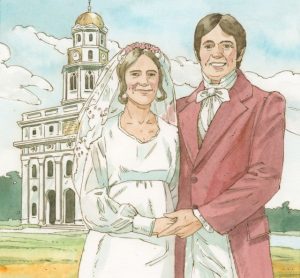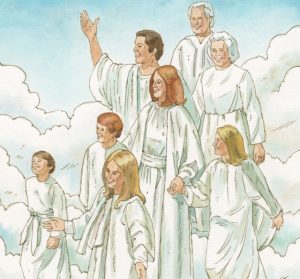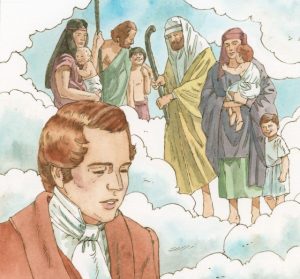I read a discussion in a Facebook group recently that touched on the use of Elder Bednar’s infamous “don’t choose to be offended” talk (the actual title is “And Nothing Shall Offend Them”) as an excuse for people to say or do offensive things. Anecdotally, it sure seems like this is the major use that this talk is put to. I’ve seen the talk referred to many times, but it has been a long time since I actually read it, so this time I did.
What struck me in reading the talk this time is that I feel like Elder Bednar is making perhaps a narrower point than I had thought. He opens the talk with a story about how, as a stake president, he loved to go with bishops in his stake to visit inactive members. He would listen to their stories, and then gently berate them for letting offense that they had experienced at church interfere with all the blessings they can get only from church, like the sacrament and the Gift of the Holy Ghost. He doesn’t say anything about the success rate he got from confronting people–I’m guessing he would have told success stories here if he had any–but the important point is that he isn’t telling us that they shouldn’t allow themselves to be offended in general. He’s telling us that we shouldn’t allow ourselves to be offended in a Church context, because we’ll be missing out on unique opportunities that we can get nowhere else.
I have always thought this talk fit with other talks on interpersonal relationships, on issues like anger or forgiveness. But now I think it actually fits better with talks like Elder Ballard’s “To Whom Shall We Go?,” where he asks people leaving the Church where they will go to get the support and ordinances the Church offers. Or with President Hinckley’s less confrontational but similar message where he quotes a young convert who was facing ostracism from his family as saying “It’s true, isn’t it?” and then “Then what else matters?” Or with President Nelson’s recent talk where he tried to close the temple work for the dead loophole so people wouldn’t think they could get away with living church-free lives now.
Especially in light of these other messages, the underlying assumption of Elder Bednar’s talk is that the Church has essential things–ordinances, but also teachings–that simply can’t be had anywhere else. It makes sense if this is true, then, that no amount of offensive behavior from local leaders, or indeed from general leaders, is a good reason to leave. The Church holds a monopoly on exaltation, so people who want to be exalted had better be willing to put up with anything so they don’t risk losing their access.

In the world of money and markets, monopolists are often guilty of (or perceived as being guilty of) leveraging their monopoly power to get more money out of their customers. The Church isn’t designed to be a money-making enterprise (although there may have been some mission creep). I appreciate that there are many things that General Authorities probably could do given the Church’s exaltation monopoly that they haven’t. They could increase tithing. “Where else will you go?” they could ask. They could inflict all kinds of more onerous burdens on members. They could require monthly or weekly temple attendance. They could require bishops to review members’ tax returns to be sure they’re paying enough tithing. They could re-start a United Order, and require members to deed all property to the Church. I think they don’t do things like this because they don’t see them as necessary, and again, unlike a business monopoly, they’re not trying to exploit the monopoly. They’re just pointing out that it exists.



